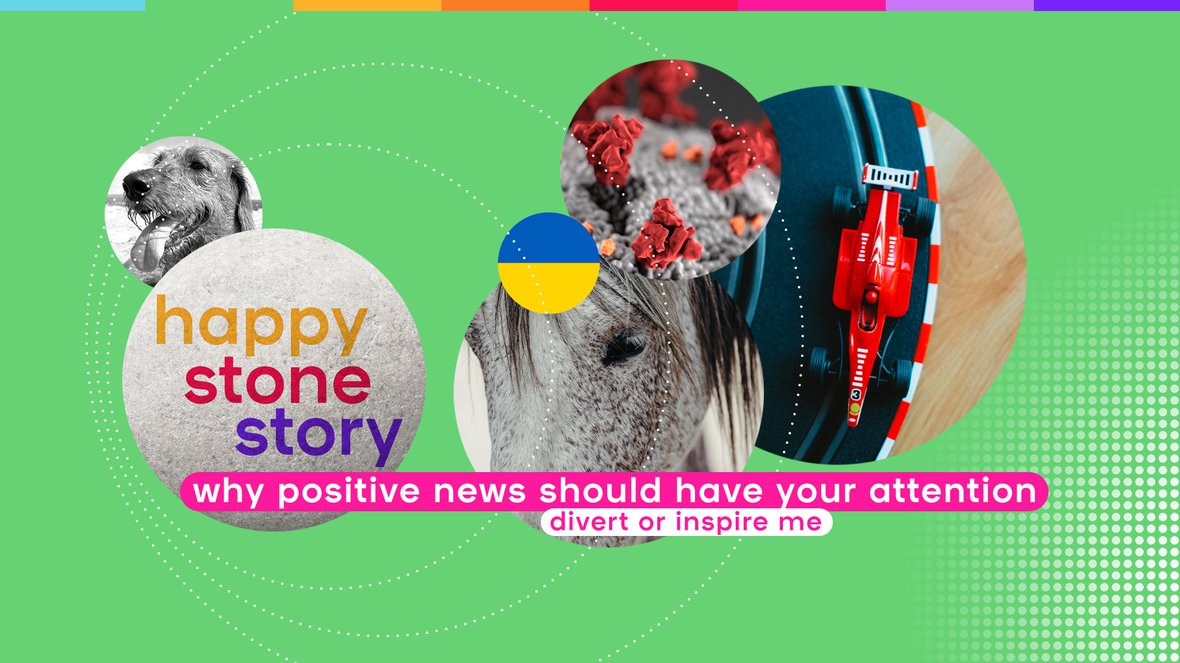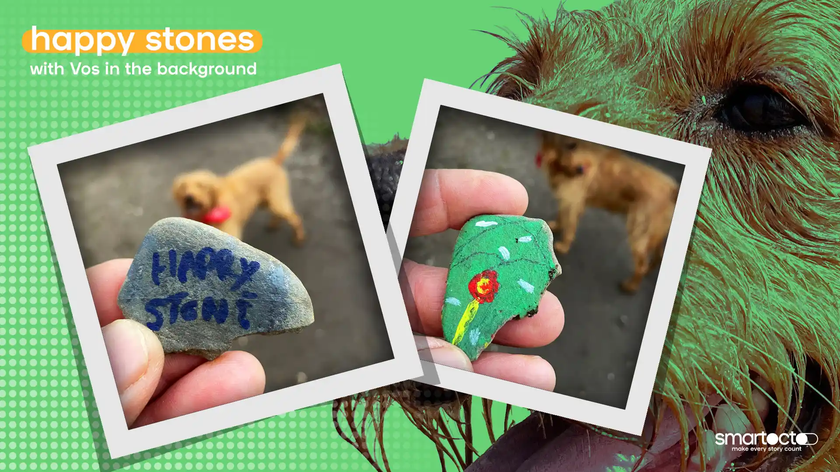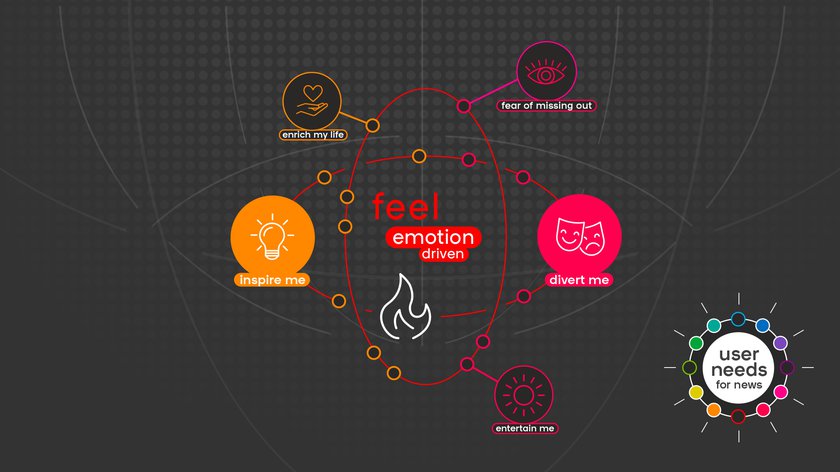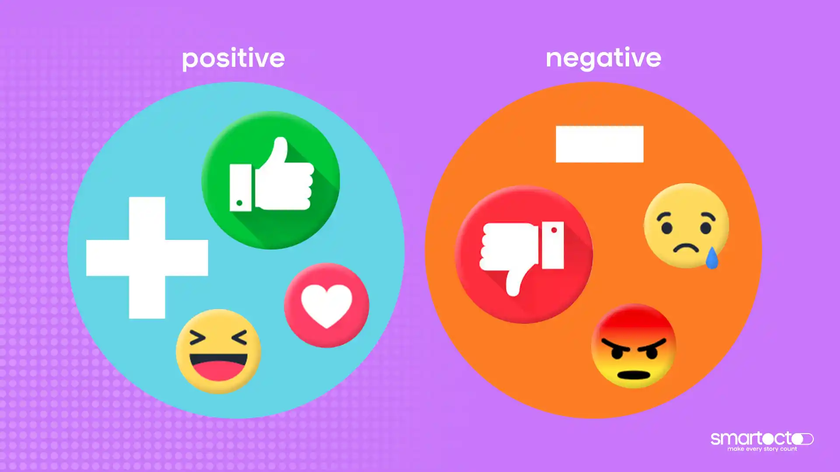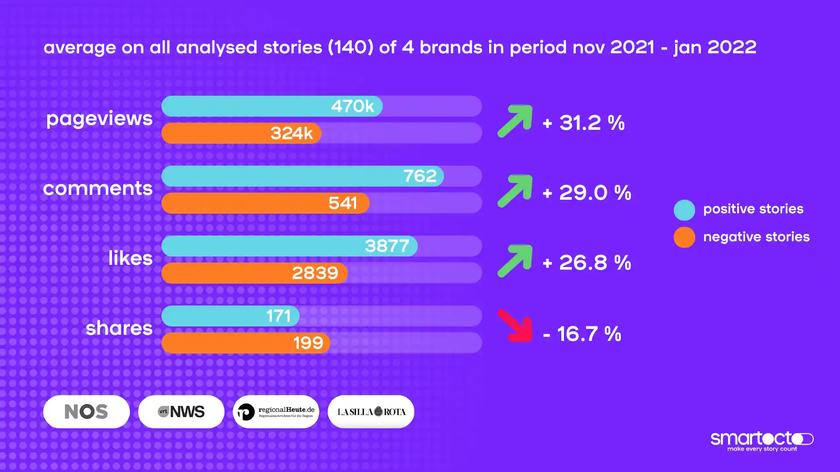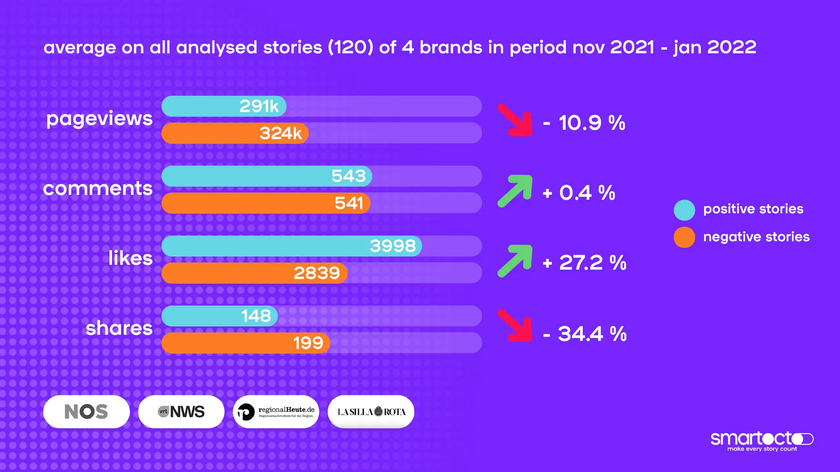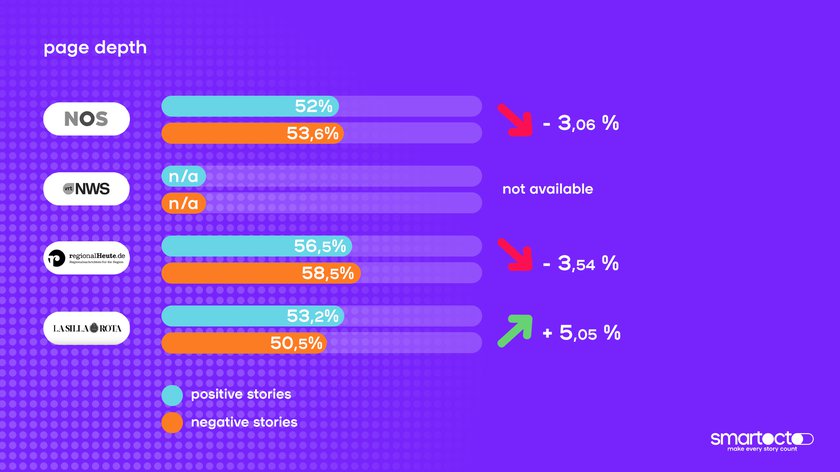During the period of this survey, Covid was still very dominant present in the news. Because the Covid articles were hard to define, and because some of the likes were not related to the news story but rather to the effect it had on people, we did another analysis where we cut out these Covid articles. There were 20 of these articles in total, but it really had some unexpected effects on the results. Although comments and likes still were higher than the negative stories, one could argue that the comments are more or less the same. The ‘liked’ articles favour positive news coverage. But more striking are the results on pageviews and shares. They both are lower than for their negative counterparts.
I realised that the 20 Covid articles made a huge difference in the total numbers. And that made me dive into the data one final time. I wanted to figure out which article (from all 140 analysed stories) was the most positive (having almost no negative feedback and high amount of positive reactions) which one was the most negative (having no positive feedback and high amount of negative reactions) and which news story was the most polarised (high on both positive and negative).
This is what I found:
2 articles on the positive side stand out.
One of them is about Max Verstappen winning in Abu Dhabi. It got the most positive feedback of all stories, more than 8k LOVES and just 41 negatives. And one other story stood out as well. This was from VRTnws about a person who stopped another car whose driver had become unwell by using his own car as a blockade. The video of the incident went viral and people loved this heroic action. It got over 5k LOVES and just 3 negatives.
So if we exclude a sports result (which of course was the incredible win of Max Verstappen), the heroic action of an individual who saves the life of another person while putting himself into danger is something people truly like and this would definitely have been the ‘happy stone story’ of the day!
For the negative stories I noticed that really tragic stories and ones recounting horrendous suffering stand out. A devastating story about a 2-year old boy who froze to death when he was searching for his parents and a story describing firework violence towards a horse got the most negative feedback (SAD reactions (for the 2-year old) and ANGRY (for that of the horse). And while this is of course not surprising, I always wonder why news organisations publish this news if it is actually ‘only’ Update Me (check out our guide to how to cover this user need here).
And the article that got a lot of negative as well as positive remarks was a story about the Dutch royal family who organised a party for Princess Amalia who turned 18. Although Dutch Covid regulations stipulated that the maximum size of a gathering was 4 guests, the invite list for this party was far longer. The most remarkable thing here is that people massively reacted to this story, and over 5k comments were left. These comments were often funny, for example saying that due to the fact the royals have immense gardens the 1.5 metre social distance zone couldn’t possibly be violated. That gathered a lot of HAHAs, while the initial article got loads of ANGRY-likes. So apparently humour arises once there are stories people feel ANGRY about. Good to know, especially if you’re a comedian with writer’s block.
Page depth
There’s one more thing we found in the data that’s worth mentioning. It’s all about page depth. Page depth looks at how many other stories people click on once they enter your domain via a particular story. I wondered if the page depth of these positive articles would be higher than on regular stories. In that case it could be smart to publish positive news articles more regularly because it contributes to the overall content strategy.
We only found that for La Silla Rota the page depth was a lot higher than with regular articles. None of the other news brands that were part of this survey showed an uplift on page depth. With more than 5% increase it’s safe to say that the Mexican news brand La Silla Rota can benefit from bringing positive news more often. We’ve reached out to the editor in chief of their online news platform but unfortunately he hasn’t reacted to these insights yet.
